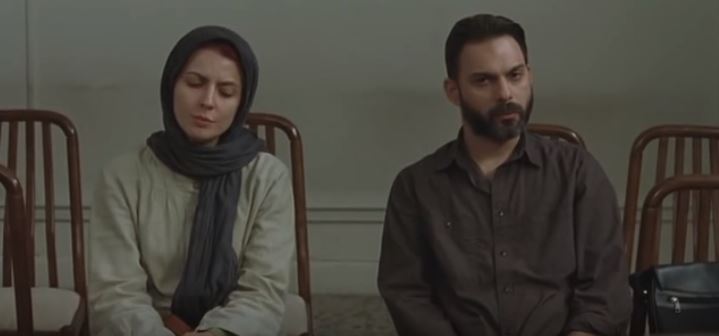Separations

Set in modern day Tehran, A Separation opens with one long three-and–a-half-minute shot, in which a wife and husband passionately address an unseen (but occasionally heard) judge. At issue is a divorce that the wife wants because her husband will not leave the country with her and their 11-year-old daughter as they had previously agreed to do. The husband explains to the judge that he cannot leave because he is caring for his father who has Alzheimer’s disease. “What difference does it make to him?” the wife argues. “Does he even realize you are his son?” “I know he is my father,” the husband retorts. The scene ends with the judge refusing to grant a divorce and instructing them to return to their lives and work out this problem on their own.
In content and in emotional tone, this opening scene is a condensation of the 2-hour film to follow. The rest of the film unpacks and expands scene by scene the events and additional conflicts that unfold in the life of this family and another family brought into their orbit. The film moves along at a rapid pace. The cutting propels the viewer from one scene to the next. Even scenes from one time frame to another are not denoted with the traditional fade to black in between. This can sometimes result in momentary disorientation for the viewer, but is actually in keeping with how the viewer is asked to be engaged with the story. The viewer does not always have the whole story nicely in hand. Pieces of the story, as in life itself, often do not come to light until later. The result is a very engaging viewing experience, as part of one’s consciousness while viewing is asking questions about, or guessing at, the missing information.
